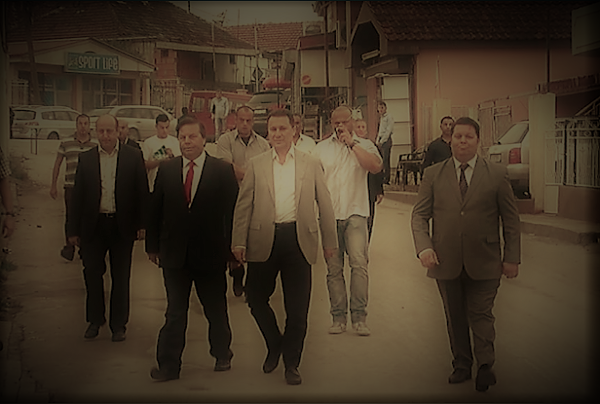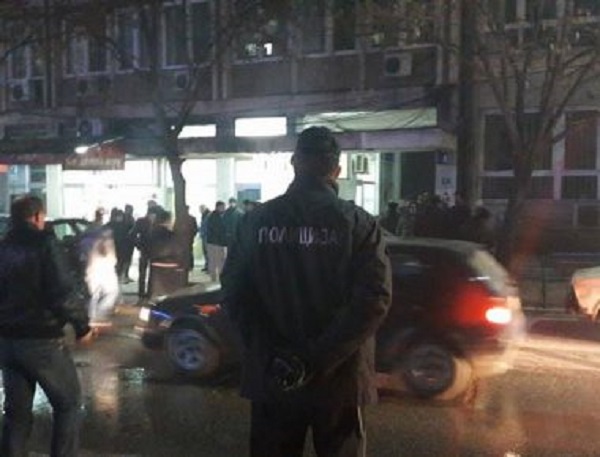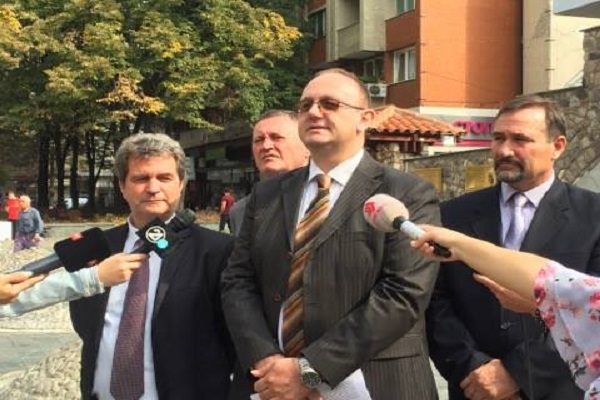“Flour”, “oil”, “500 Denars”…, that is the first association one thinks of when the Roma are mentioned in relation to the election processes. Unfortunately, it can be concluded from the field work and from the reports of CIVIL – Center for Freedom that the Roma ethnic community is used as a cheap electorate.
Throughout Macedonia’s electoral history, the cheap vote of the Roma has been abused many times. Some political structures have even given and are giving the votes of the Romas for small sums of money, thus sealing the fate of the Roma community, which for years has not had its own voice in any sphere of social changes.
Group and family voting have become a trademark of the Roma ethnic community. However, in the past several election cycles, in addition to vote buying, other incidents taking place among the Roma during the election campaign have also become prevalent. The headlines from journalist archives and the reports of CIVIL’s observers testify to this situation: “SDSM is buying votes in Shutka with rotten meat” (2011), “VMRO-DPMNE is buying Roma votes with oil and a bag of flour” (2013), “Sekerinska attacked by Amdi Bajram” (2014), “Electoral vote buying with firewood” (2016), “Amdi caught handing out money” – (report by an observer of CIVIL), “On thin ice” – (testimony of CIVIL)…
In the past several days, several minor violations have occurred in Shutka since the campaign started. The most serious incident is the physical attack on Elvis Bajram, the mayor of the Municipality of Shuto Orizari, and at the same time running for mayor of the municipality in the local elections. Bajram was attacked two days ago on “Guadalajara” street in Shuto Orizari, and injured while having meetings with the citizens. Adnan Memed, chief of mayor’s cabinet, was also with Bajram. Opponent Kurto Dudush claims that the group fighting had started after Elvis and his pals had attacked a woman who was opposing them while they were tearing down posters from SDSM’s headquarters in Shuto Orizari.
The MOI informs that several people who had participated in the fight have been identified and called in for a conversation, and that collecting evidence for further action is under way. They also add that every attempt to violate the democratic election process and endanger the safety of the citizens will be sanctioned accordingly.
The police need to quickly clear this case so that anger does not build up. If the competent authorities do not clarify the case, it is more than obvious that revenge on the attackers will follow after the elections.
Shuto Orizari and the remaining Roma neighborhoods in the country have been treated as ghettos until now, and practically no work has been carried out on educating the voters, no advisory materials have been given to them, and no explaining made on their rights and obligations.
What is most important following these incidents, is for the police to show that it really is not a party servant (as it was previously MVRO), but that it is there for all the citizens, and for it to be present in the municipality and all the other Roma-Turkish neighborhoods. Especially since in the past ten years, a private security agency maintained the “order” in Shuto Orizari, with the amen of Gordana Jankulovska and Saso Mijalkov.
This case should be solved and not be put “under the rug”, as was Amdi’s attack on Sekerinska on election day in 2014, and as there is still no report for Mayor Elvis, who attacked a citizen on the market in Shutka.
Ever since VMRO-DPMNE lost its power, and the SRM party started losing the support of the citizens, Amdi is no longer the absolute “ruler” and king of the Roma. Saso Ordanovski explains his ruling quite well in his column –“Middle finger for Amdi”, where he reminds that: “The Roma are always with the government”, and Amdi is not with the government now …
The question is why do the Roma always use a dirty campaign? Why is it that one of the smaller groups of citizens (according to the last population census, which has long been outdated) is filling the reports of observers and news headlines of the media with election violations, vote-buying and fights, when they do not have the power to impact the end results in terms of which of the bigger political parties will be in power, as there are seven official Roma political parties.
Nevertheless, the cheap Roma vote is very precious for the local elections. Experience and recent reports say that precisely the Roma votes decided who would be the winner in a given municipality. But their precious defining vote, cheaply bought until now, is forgotten immediately after the votes have been counted, up to the next elections! Will the Roma at these elections as well use a dirty campaign, and be dragged “Gypsy by gypsy by the ears and taken to the voting”! And will the Roma politicians and voters become aware of the significance of free, fair and democratic elections,
without pressure, vote-buying and threats, because only in such way will we eradicate and listen and read about – “We ask the Roma not to do Gypsy stuff”!
Dehran Muratov

















